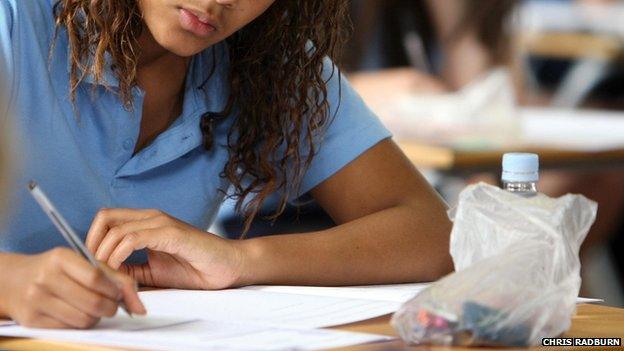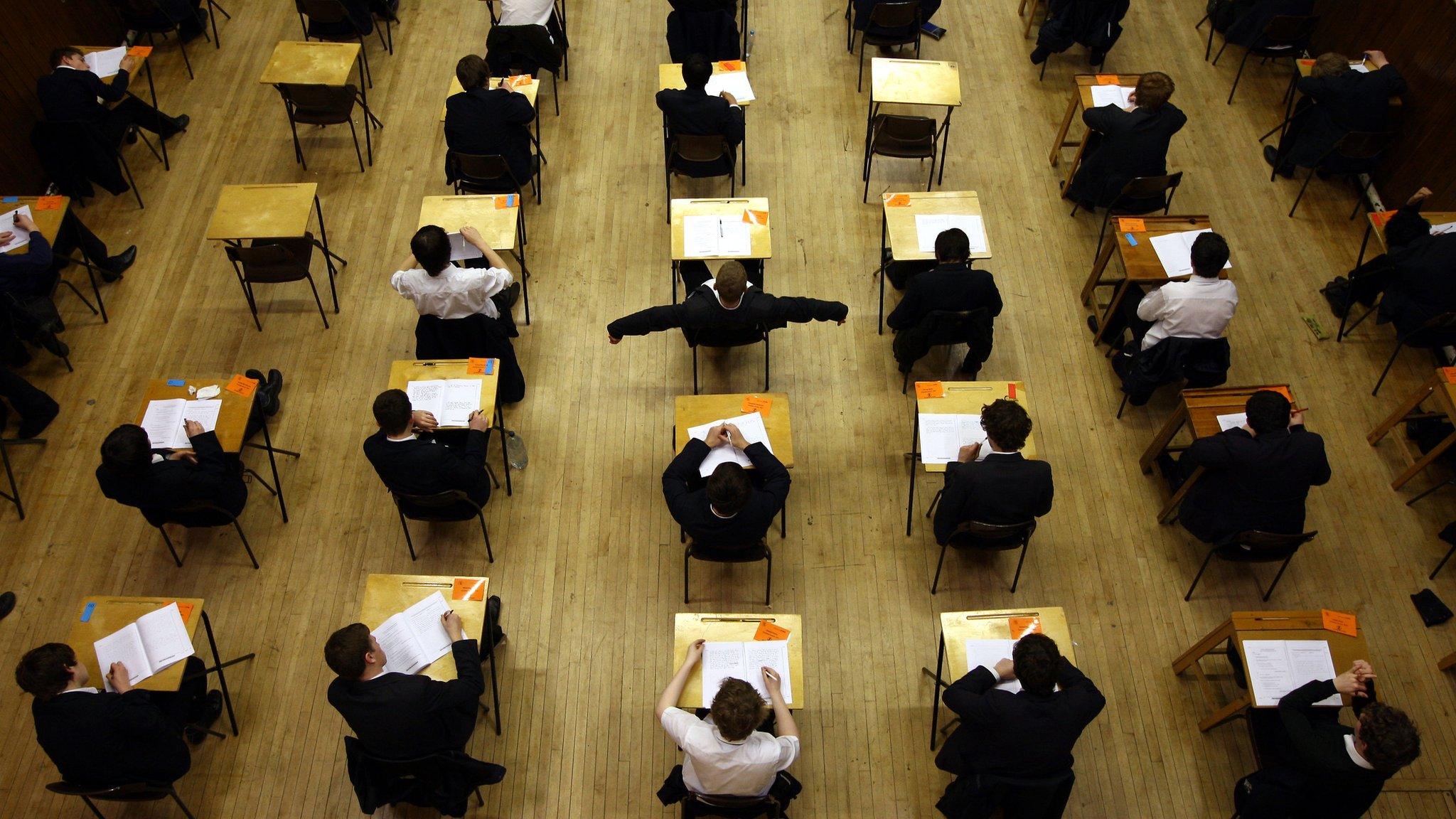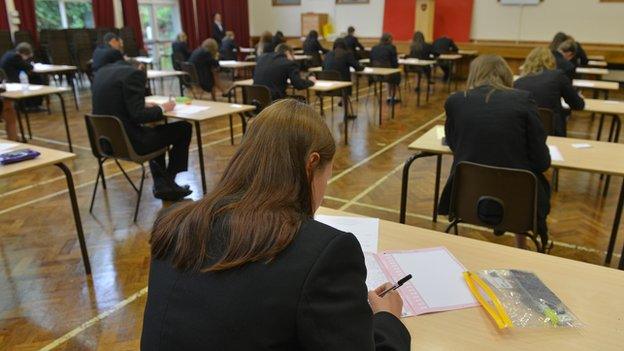GCSE maths: how a tough exam may not result in poor grades
- Published

Students might find that harder questions do not count against them
Thousands of teenagers took to Twitter to complain. Others signed online petitions demanding exam board Edexcel lower the grade boundaries after finding a GCSE maths paper "ridiculously hard".
The exam board has assured students it will treat them "fairly" when it comes to marking. So how will Edexcel ensure this year's pass rate does not fall through the floor?
In common with other major exam boards, Edexcel sets grade boundaries once all the work has been marked.
"This helps maintain standards from year to year, as it takes into account differences in the difficulty of the exam or assessments," explain Edexcel's owners Pearson on their website, external.
Once the raw marks are in, senior examiners meet to assess a range of the marked work and compare the standards with those outlined in the exam specification and with work from previous years.
"This helps our senior examiners get a rounded picture of how learners have performed and, after careful consideration, they use their professional judgement to decide the minimum number of marks required for each grade," says the webpage.
Uniform marks
Exam boards often convert raw marks on a Uniform Mark Scale (UMS) to help examiners make this comparison year on year.
Raw marks from exam papers that are considered easier count for fewer UMS marks than those from harder papers.
So angry GCSE maths candidates may find that, despite considering the paper tough, their raw scores will count for more UMS marks than they would have done in an easier paper, so their grades may not be affected.
Brian Lightman, general secretary of the Association of School and College Leaders, agreed that unreasonably difficult questions would be reflected very quickly in the marking process.
However, he warned tough questions could affect candidates' confidence, put them off their stride and affect their overall performance.
"Schools are always very attentive of pupils during the exam period.
"If they pick up concerns from pupils after a paper and if teachers consider a question to be unfair, then schools should do everything they can to reassure pupils and take up the issue with the exam board."
'High stakes'
Mr Lightman said quality assurance processes when exam papers are drafted should prevent excessively difficult questions.
But he added that it was sometimes not until pupils actually sat exams that questions examiners "thought were OK just turn out to be too difficult".
National Association of Head Teachers' leader Russell Hobby said some variation in the difficulty of exam papers from year to year was inevitable.
"The pass marks are adjusted to reflect that once the results are in. This is part science and part art.
"People shouldn't worry too much about it if the adjustments are minor and applied consistently - although now the stakes for both students and schools are so high, it's hard not to worry.
"The exam system is being made to bear more weight than it can really cope with."
- Published5 June 2015

- Published21 May 2015
